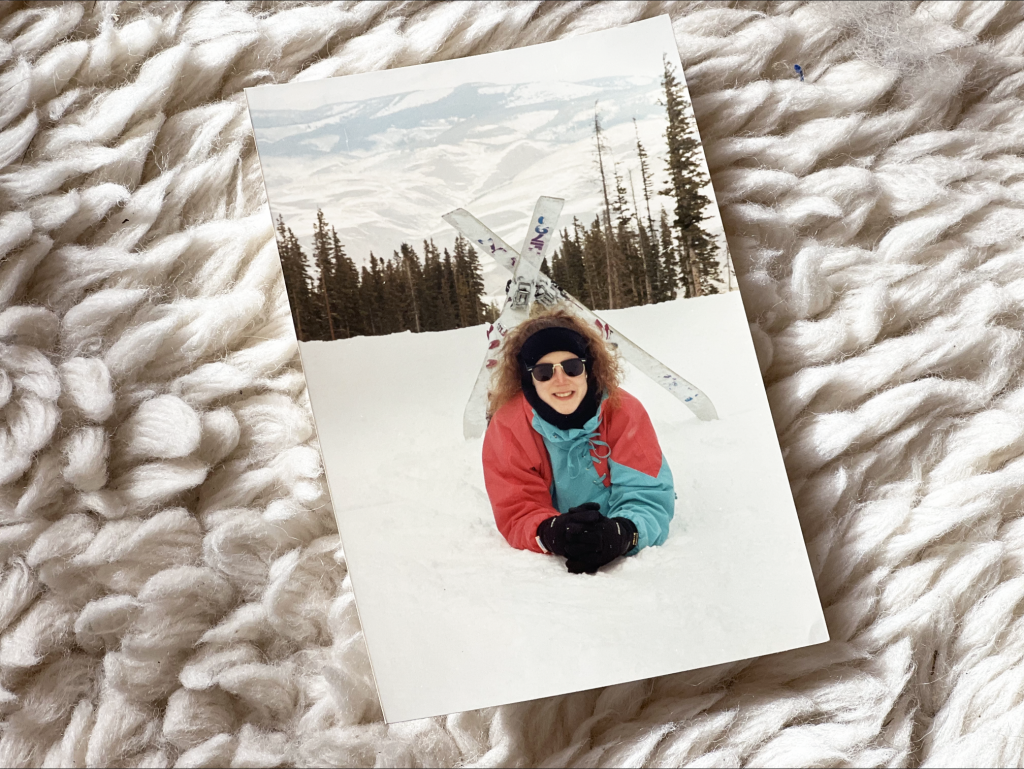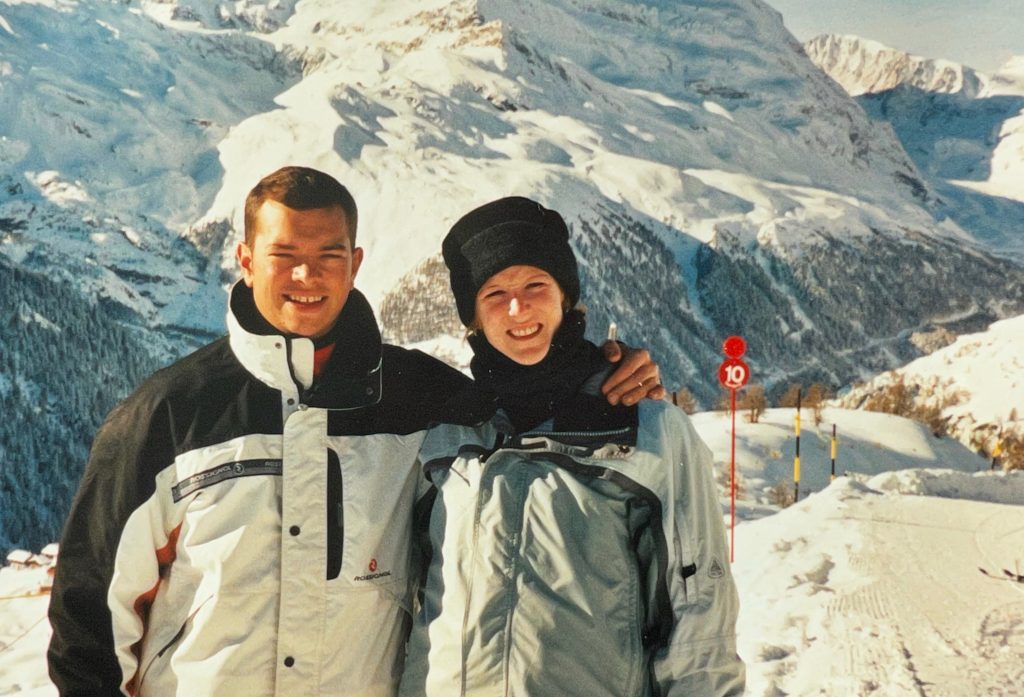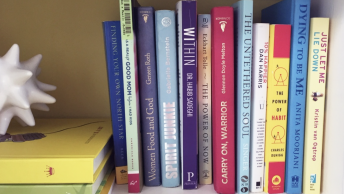Self-esteem is a fascinating and almost counter-intuitive concept when you put it to practice. On the surface, it’s defined by how you feel about yourself, but the remarkable twist is that it seems to fluctuate, almost violently, depending on the experiences and opinions of those around you.
Perhaps, like me, you’ve felt the effects of “self-esteem whiplash” when the way you see yourself goes from queen diva to dumpster fire in minutes based on the people and situations in your immediate surroundings.
An example from my own life:

Growing up in Richmond, Virginia, my family enjoyed annual ski vacations, either in Virginia or Colorado. It was great family bonding, as my big brother and I became better and better skiers with every trip. And truth be told, because I had my own skis, a shocking pink CB ski jacket, and very few childhood friends who knew how to ski, I was convinced that I was damn good.
Fast forward ten years, to when I was dating a guy from Geneva, Switzerland. Despite being born and raised 5,000 miles apart, Richard and I had a lot in common and a love of skiing was at the top of the list. As early as our first date I thought, this is perfect! I can’t wait for us to sail down the slopes together and hold gloved hands on the ski lift back up.
My dream came true during a spring break from college, when I made it to the top of the Swiss Alps with the man I loved. This was my moment. Standing tall in my non-rented ski gear at the top of the first run, I was about to knock the ski socks off this dude by showing him how a Virginia gal could keep up on the slopes.

Boy, did that plan backfire.
Richard took off at warp speed, left me in his (snow) dust, and beat me to the bottom of the mountain by more than 20 minutes. When I slowly but surely caught up with him, he looked a bit confused, as he coyly teased, “I thought you said you were good?”
I. Was. Mortified.
Unable to wrap my head around what just happened, I babbled, “I am..I mean I was…I mean…I thought I was..I mean…?”
I worried that Richard felt I stretched the truth and inflated my abilities, and more importantly, I was no longer sure what the truth was. I felt like the same person, with the same alpine abilities at the top of the mountain as I was at the bottom—both before and after my ego took a tumble. Yet I no longer knew if “competent skier” was a label I could carry—in past, present, or future tense.
Enter: A strong case of self-esteem whiplash.
So, how can you come back from this kind of event? One option is to steer clear of people who are better than you, at anything, to avoid feeling like you suck. But that seems like a lot of work, little fun, and incredibly unrealistic. Therefore, if stabilizing your self-esteem can’t come from controlling external circumstances, it must come from controlling internal ones.
Easier said than done, but your self-worth shouldn’t be affected by the acceptance or rejection of those around you.
Case in point: If you feel like a good mom in the morning for getting everyone out of the house on time and then a shitty one three hours later when you show up to your son’s school with the wrong snacks, then you are allowing the circumstances around you to control your self-image.
Remember, you’re the same mother in both situations.
When your definition of self-acceptance involves others, you’re not in a state of self-acceptance.

Years later, I married that ski savant. He remains a phenomenal skier but I no longer allow that fact to say anything about me. I didn’t suddenly become a bad skier that sunny afternoon in Switzerland. I was good when I started at the top and still good when I made it to the bottom. At least in my mind, which is really all that matters.
On our family ski trips twenty years later, Richard still smokes me to the bottom of the mountain—and now so do my two teenage children! But it’s all good.
The way I see myself is no longer built off the reflections of others.
It’s time we learn to assess our abilities and accomplishments in a vacuum, without the self-defeating practice of constantly pitting ourselves up against others and losing.
After decades of therapy sessions, self-help books, and Oprah episodes, I’ve finally learned to not let the experience and opinions of others threaten my sense of self. I’m a good skier. And just because my husband is better, doesn’t mean I suddenly got worse.
I get to decide how I feel about myself and the same is true for you.







Thank you for sharing this, Katherine. I love this and needed to hear this.
– Your ex student who is still learning from you
Mansi — So wonderful to hear that I can still teach you a thing or two! It’s a lesson that I am continuing to learn myself.